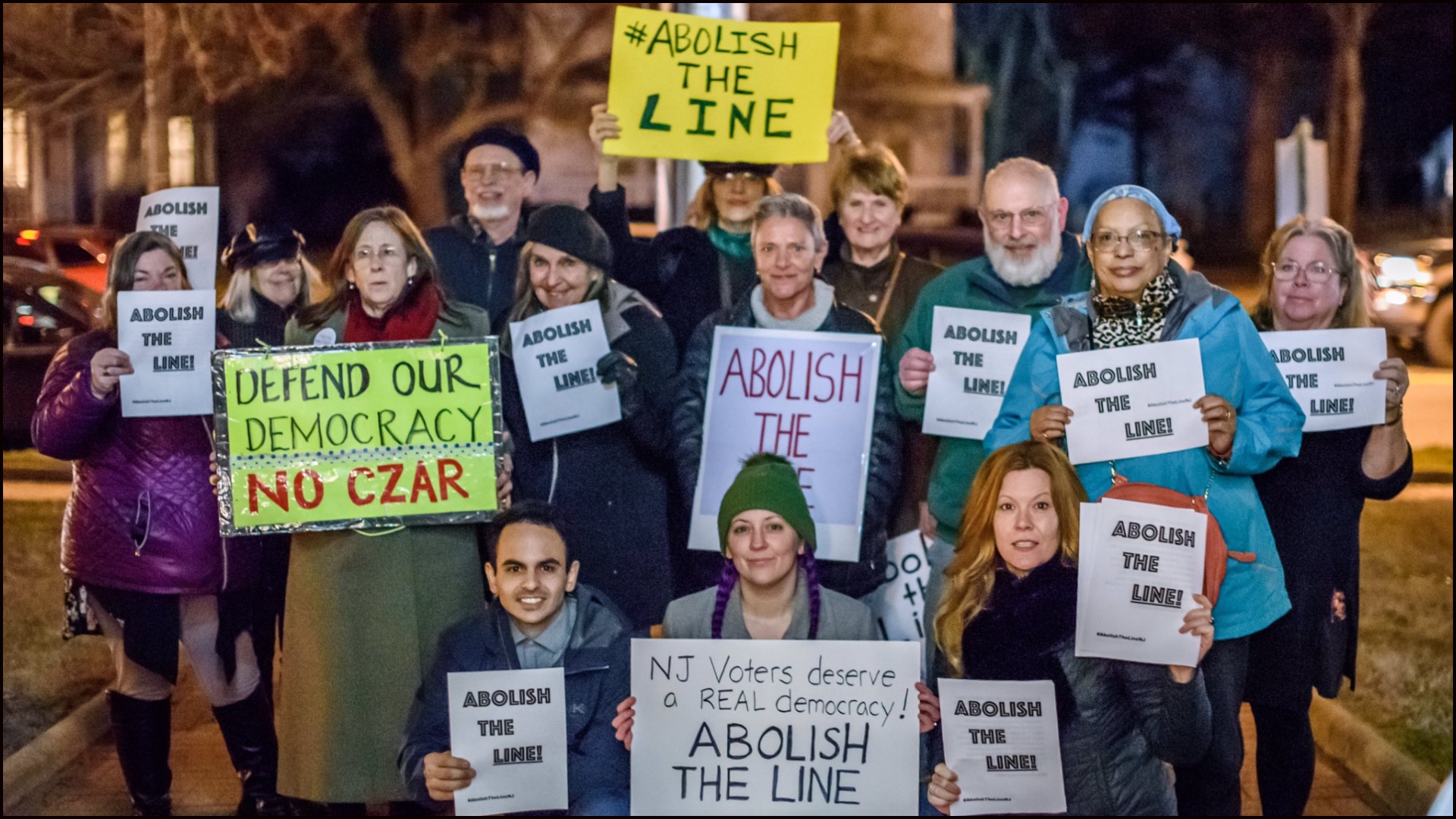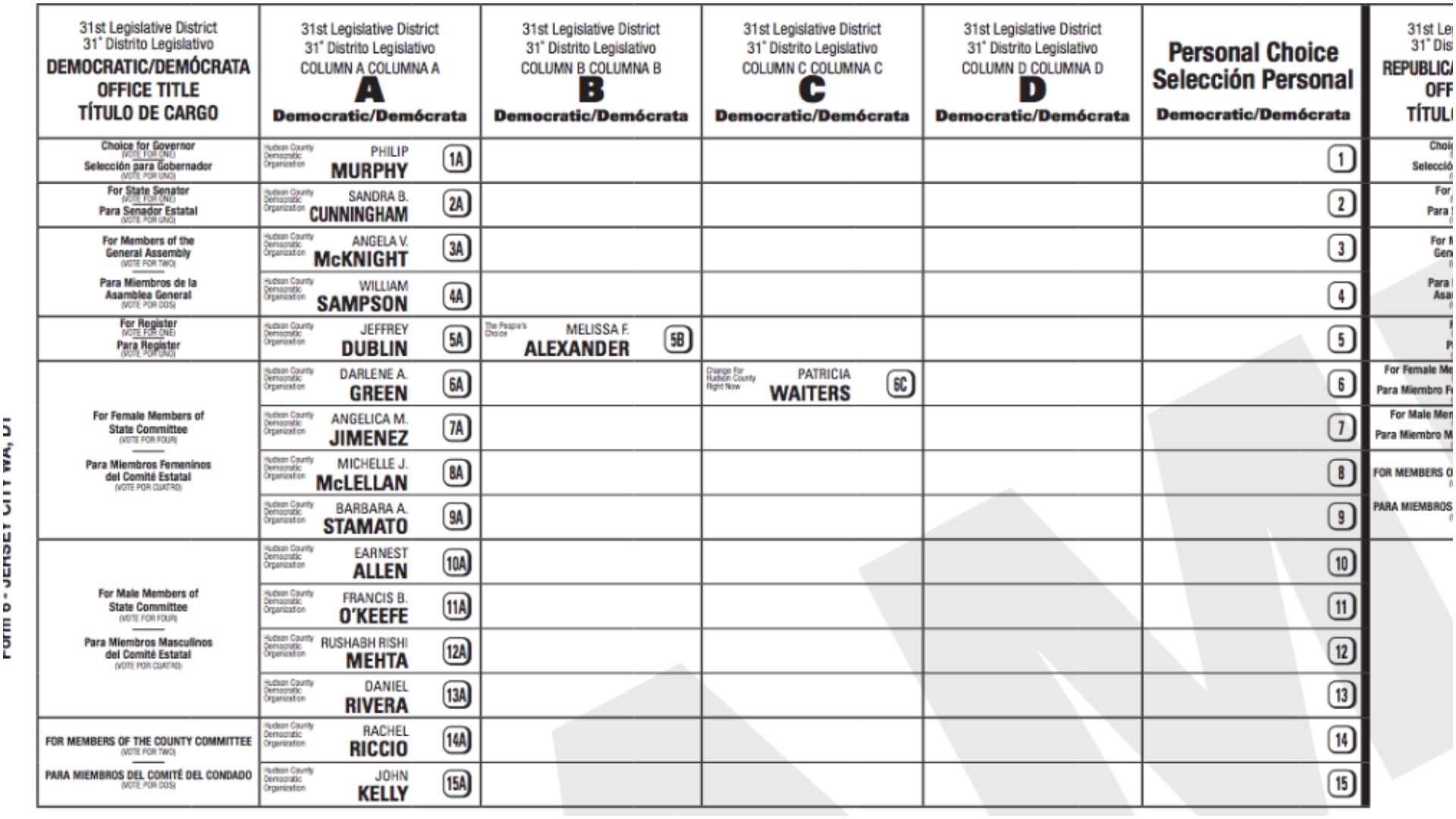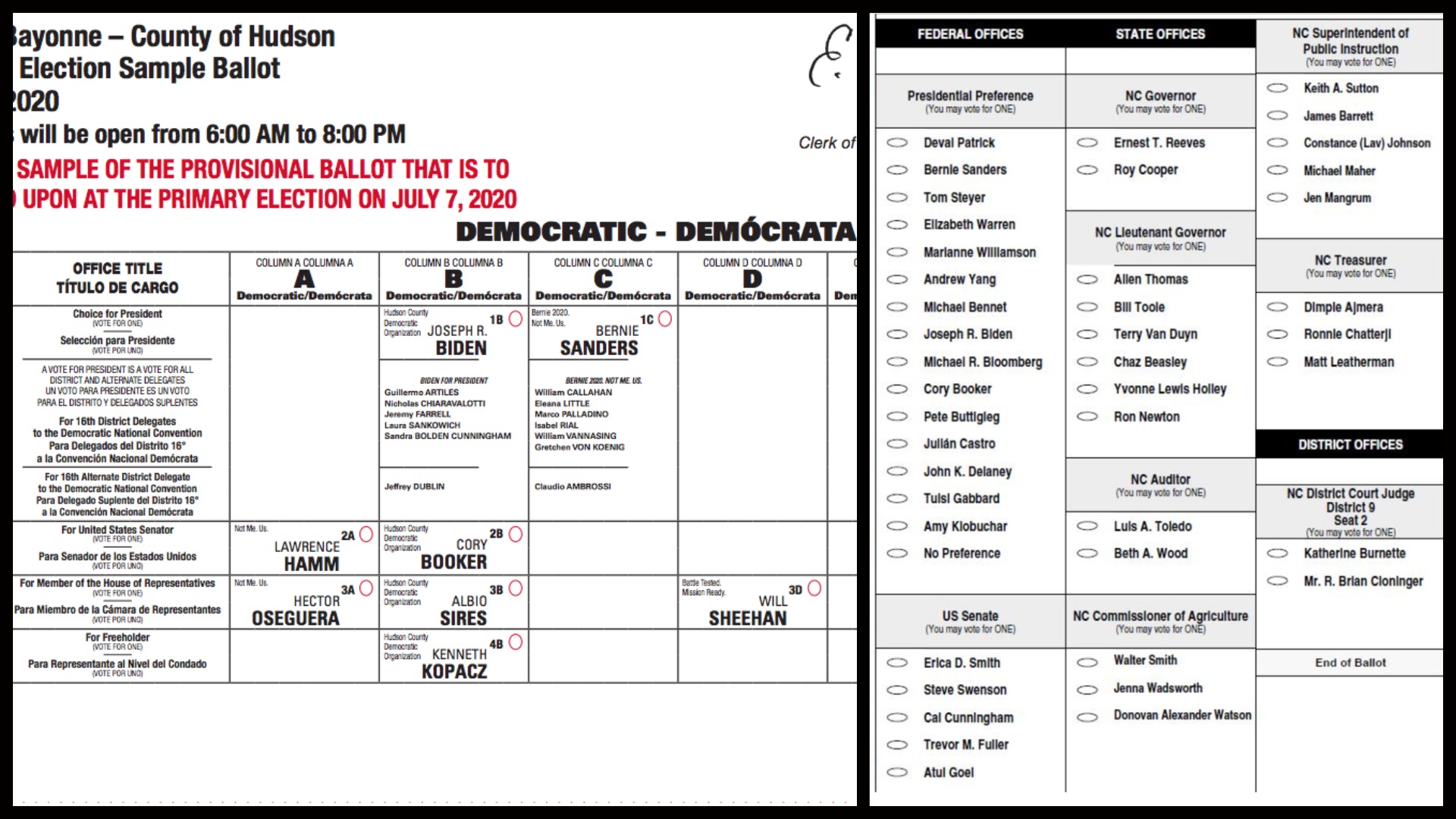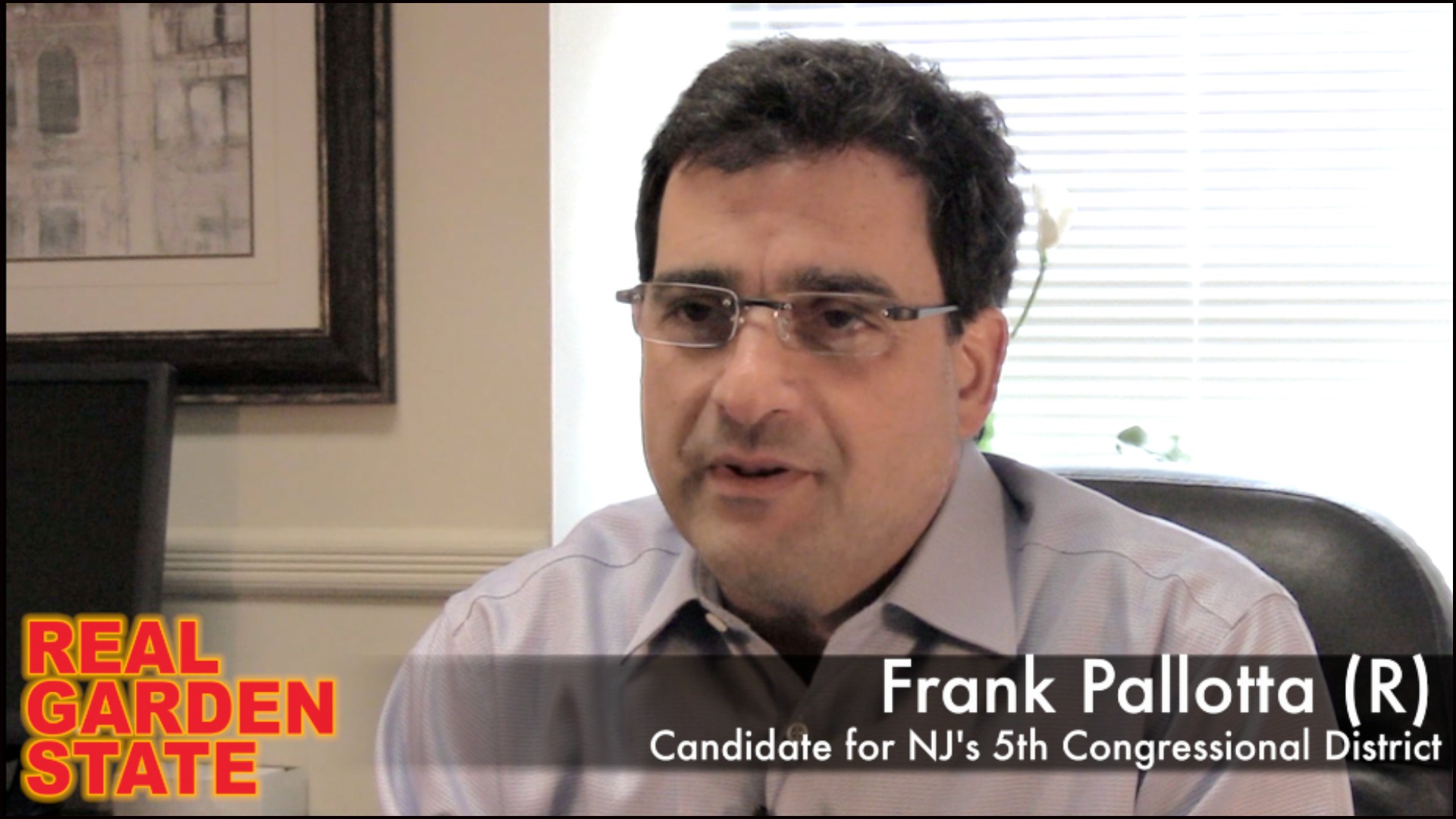#AbolishTheLine is a progressive initiative to reform the way election ballots are designed in New Jersey, but it won’t fix democracy in the Garden State.

Progressive activists want to #AbolishTheLine. (PHOTO: Cape May County Indivisible/Twitter)
It’s been said a million times, but I’ll say it again – New Jersey is infamous for political machines controlled by party bosses entrenched in public corruption schemes.
The oil that keeps the engine running? Patronage in all of its inglorious forms (cronyism, nepotism, etc.). Unbeknownst to many citizens, a key cog in the machine is The Line – a straight column of party-backed candidates that dominate primary elections.

Example of The Line in Hudson County – “Column A All The Way”
Power structures vary from county to county, yet the story often sounds the same. Party bosses decide which candidates get to run on The Line, thus they decide who our elected leaders are.
Due to gerrymandering, the winner of the primary (June, low-turnout) is essentially the winner of the general election (November, high-turnout) for the majority of contests. Quality candidates are deterred from running for office because it’s practically impossible to organize against the machine (unless you’re independently wealthy).
In our current reality, that means the majority of New Jersey residents are governed at the county, state, and federal level by elected officials empowered by Democratic bosses.
To paraphrase the rapper Rick Ross, “a political challenger is one who can stand on their own feet, a political boss is one who guarantees everyone eats.” At its core, The Line is a collection of special interests – business, legal, unions, etc. – that coalesce around a party boss who picks the candidates. Relationships can get messy, but at the end of the day everyone gets a slice of cake (some bigger than others).
Political machines have built-in votes (beneficiaries + family/friends) and resources (campaign workers, facilities, etc.) for get-out-the-vote (GOTV) operations. Political challengers have to motivate apathetic voters to participate in an election that occurs shortly after Memorial Day. Mixing those two realities with straight column voting gives party bosses an unconscionable amount of power.
In an effort to challenge the status quo, progressive activists have launched a campaign to #AbolishTheLine – an initiative which would reform the way election ballots are designed in New Jersey. A few months ago, I interviewed one of the organizers from that movement, Imani R. Oakley, who is now a Democratic congressional candidate in New Jersey’s 10th Congressional District. Watch below:
Oakley is challenging Rep. Donald Payne, Jr., and is running on a socialist platform. By her own admission, the odds are daunting, if not insurmountable, because she won’t be running on The Line in Essex County (or any other county included in the district).
To make things fairer, Oakley supports implementing a “bubble ballot” – so each elected office is voted on independently during partisan primaries (and maybe general elections, too). In that situation, the challenger still faces daunting odds, but the chances of pulling off an upset are significantly better.

Column Ballot vs. Bubble Ballot
Unfortunately, #AbolishTheLine is overhyped. If implemented, the practical outcome is that outside special interest groups (with Super PACs) will be more willing to take on incumbents. A handful of challengers – mostly progressives – will pull off stunning upsets over the course of a decade, but that won’t fix our state’s democracy.
Fixing New Jersey’s democracy means shifting power from partisan primaries to non-partisan general elections, empowering voters to choose their preferred candidates, and reducing the influence of party bosses. The following is a three-step plan to improve civic participation in New Jersey:
1. Abolish partisan primaries, implement ‘Top 3’ advance system
As previously noted, the winner of the primary is essentially the winner of the general election for the majority of partisan elections in New Jersey. The first goal of fixing democracy in New Jersey should be making the general more consequential than the primary.
To do that, the state needs to implement a non-partisan primary system. For example, all candidates for voter-nominated offices in California run in the same primary (Democrat, Republican, etc.). They are listed together in a “bubble” and only the top two vote-getters in the primary – regardless of party preference – move on to the general.
However, instead of two, New Jersey should allow the top three vote-getters in a non-partisan primary to move on to the general. The change would apply to all federal, state, and local elections (except presidential and board of education).
Additionally, like California, write-in candidates would only be allowed to compete in the primary. Also, if successful primary candidates choose to withdrawal from the general election prior to ballot drawings, they would be replaced by the next highest vote-getter.
The practical outcome of such a reform in the 10th district means 1) Oakley will be able to compete against Payne in the general (assuming progressives & leftists unite around her candidacy); 2) a Republican candidate with no chance of winning won’t automatically qualify for the general election; and 3) independent candidates would have a realistic opportunity to secure the third spot.
2. General election voters rank choice ‘Top 2’ candidates
For various reasons, one of the worst lines in politics is “voting for a third-party candidate is throwing away your vote.” The second goal of fixing democracy in New Jersey should be creating an atmosphere where general election voters choose their favorite candidates guilt free.
To do that, the state should implement a ranked choice voting system for the general election. In contests with three candidates, voters would rank their top two choices. If a voter’s top choice loses, and no other candidate receives 50% of the vote after the first count, their vote would then go to their second choice in a instant runoff (assuming two candidates were ranked).
Abolishing the partisan primary and implementing ranked choice in the 10th district means 1) instead of a nominal Republican challenge in the general, Payne would likely have to compete against two other Democrats; 2) Payne would need 50% of general election voters to be reelected (rather than a plurality of Democratic primary voters); and 3) all candidates would be incentivized to run inclusive campaigns that don’t alienate voters (especially challengers that want to be #2 on ballots).
In that political environment, Payne would probably win, but it wouldn’t be like the cycle of reelection cake walks he’s currently coasting through.
3. Expand the New Jersey General Assembly to 80 districts, abolish at-large county commissioners
Once again, political machines have built-in votes and resources for GOTV operations. The party bosses who operate them aren’t going away no matter what election reforms are enacted. That said, on top of the aforementioned proposals, shrinking the size of some elections would help reduce their influence.
To do that, the state should abolish at-large county commissioner elections and expand the assembly from forty districts to eighty districts. Additionally, new assembly districts should be drawn irrespective of the senate and avoid splitting municipalities as much as possible.
Regarding the state legislature, currently two assemblypersons and one senator are elected per district. Drawing a new map for the assembly with eighty districts means candidates would compete individually in districts with a population of approximately 115,000 (rather than 230,000).
As for county legislators, at-large positions should be abolished in favor of districts and all boards should be expanded to at least nine seats. For example, Bergen County would go from seven at-large commissioners to nine commissioners from separate districts. Essex County would go from five districts and four at-large to nine districts.
Ultimately, organizing isn’t easy and those concerned about the state of democracy in New Jersey should be concerned about The Line. Challengers will always face daunting odds in the Garden State, especially for federal, state, and county elections, but what’s going on now is a fixed game that needs to end.


